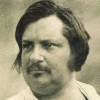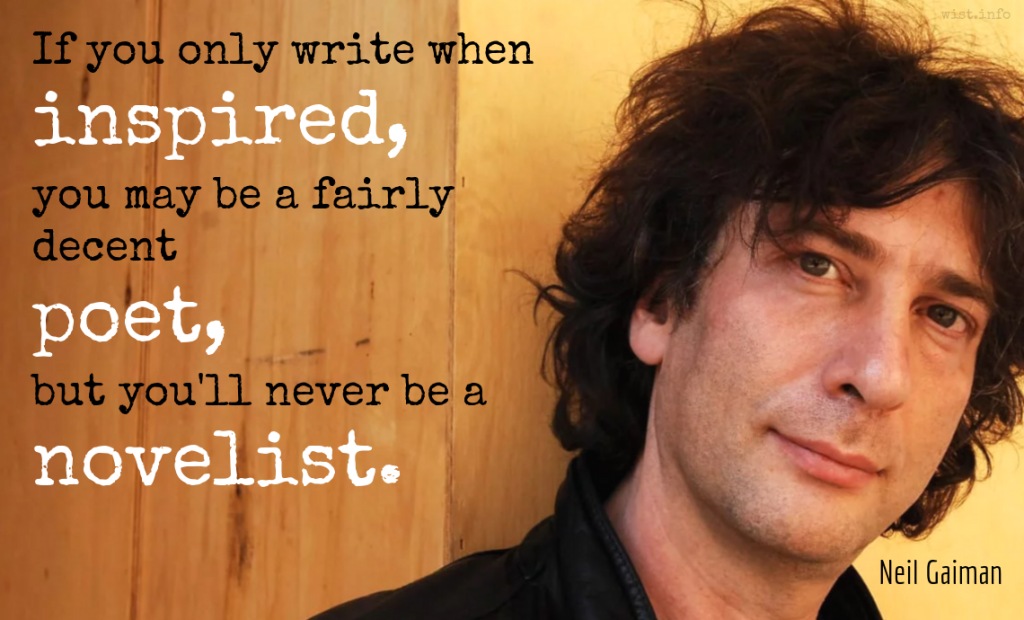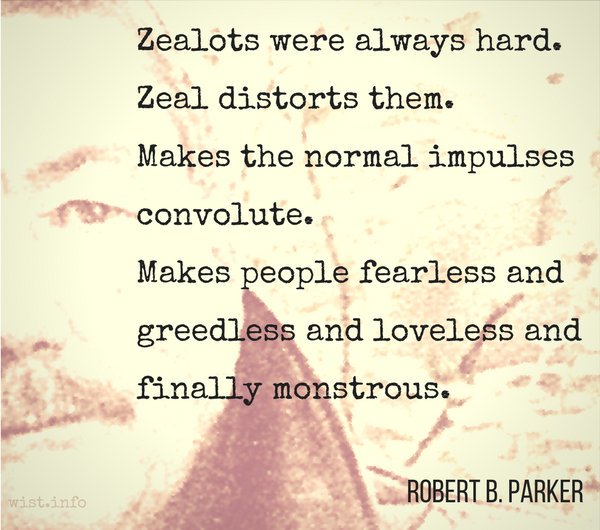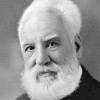If I wanted to write, I had to be willing to develop a kind of concentration found mostly in people awaiting execution.
Quotations about:
dedication
Note not all quotations have been tagged, so Search may find additional quotes on this topic.
Whatever then its value be,
Accept this little book from me;
And, o protecting Virgin, deign
It may for centuries remain![Quare habe tibi quidquid hoc libelli
qualecumque, quod, o patrona virgo,
plus uno maneat perenne saeclo.]Catullus (c. 84 BC – c. 54 BC) Latin poet [Gaius Valerius Catullus]
Carmina # 1 “To Cornelius Nepos,” ll. 8-10 [tr. Nott (1795), l. 11ff.]
(Source)
Dedicating the book to his friend and patron, as well as to Pallas Athena.
(Source (Latin)). Alternate translations:
Then take the book I now address,
Though small its size, its merit less,
'Tis all thy friend can give;
And let me, guardian Muse, implore
That when at least one age is o'er,
This volume yet may live.
[tr. Lamb (1821), st. 3]
Then take this little book, whae'er
Of good or bad it store;
And grant, oh guardian Muse, that it
May keep the flavour of its wit
A century or more.
[tr. T. Martin (1861), st. 3]
Wherefore accept my tiny leaves, I pray,
Such as they are, -- and, Patron Goddess, give
This boon: that still perennial they may live
After a century has roll'd away.
[tr. Cranstoun (1867)]
Therefore welcome it, yours the little outcast,
This slight volume. O yet, supreme awarder,
Virgin, save it in ages on for ever.
[tr. Ellis (1871), st. 4]
So take, whate'er its worth may be,
My Book, -- but, Lady and Queen of Song,
This one gift I crave of thee,
That it may live for ages long!
[tr. Lang (1888)]
Then take thee whatso in this booklet be,
Such as it is, whereto O Patron Maid
To live down Ages lend thou lasting aid!
[tr. Burton (1893)]
Therefore take this booklet, such as it is, and, O Virgin Patroness, may it outlive generations more than one.
[tr. Smithers (1894)]
So take and keep for your own this little book, such as it is, and whatever it is worth; and may it, O Virgin my patroness, live and last for more than one century.
[tr. Warre Cornish (1904)]
Accept, therefore, this little book and all that it contains, such as it is; and, O guardian maiden, ordain that it shall outlive this generation.
[tr. Stuttaford (1912)]
So take my small book -- if it meet with your favor,
The passing of years cannot dull its sweet savor.
[tr. Stewart (1915)]
Do thou then accept this booklet, I pray;
And grant, Virgin muse, that, if such be its worth,
It outlive the one age that has given it birth.
[tr. Symons-Jeune (1923)]
Therefore the book how slight soe'er,
Be yours: and thou, kind Muse, prolong
More than one age my timeless song.
[tr. MacNaghten (1925)]
Wherefore, dear friend, this humble volume take,
With all its imperfections, for my sake;
Which with Minerva's favour yet may last
When you and I into the dust have passed.
[tr. Wright (1926)]
Then, take this little book
for what it is, my friend.
Patroness and Muse,
keep these poems green for
a day or so beyond a hundred years.
O Virgin!
[tr. Gregory (1931)]
And so it's yours; I hand this slim book over,
such as it is -- for the sake of its patron
may it survive a century or better.
[tr. C. Martin (1979)]
Then take this little book for your own: whatever
it is, and is worth: virgin Muse, patroness,
let it last, for more lives than one.
[tr. Kline (2001)]
For that reason have for yourself whatever this little book is,
and whatever you like, oh patron maiden,
let it last a long time, for more than one generation!
[tr. Ozlem (2003)]
So take this little booklet, this mere trifle,
whatever it may be worth -- and Patron Virgin,
let it outlast at least one generation!
[tr. Green (2005)]
Book of mine for what it’s worth; whatever;
And oh, patroness Virgin, grant that it shall
Live and survive beyond the century.
[tr. Ferry (2012)]
For this reason have for yourself whatever this is of a little book,
Such as it is; O virgin patron,
That it may endure for more than one age.
[tr. Wikibooks (2017)]
So keep for yourself this little book of some sort.
May it last, O generous goddess!,
more than one long age.
[tr. Wikisource (2018)]
So new, so smooth, my dainty book,
A gift for whom? Cornelius, look,
‘Tis yours: for you in early days
Were ever wont my rhymes to praise.[Cui dono lepidum novum libellum
arido modo pumice expolitum?
Corneli, tibi; namque tu solebas
meas esse aliquid putare nugas.]Catullus (c. 84 BC – c. 54 BC) Latin poet [Gaius Valerius Catullus]
Carmina # 1 “To Cornelius Nepos,” ll. 1-4 [tr. MacNaghten (1925)]
(Source)
Dedication of the collection (though the canonical collection of Catullus's poems is dubious in its provenance).
(Source (Latin)). Alternate translations:
With pumice dry just polish'd fine,
To whom present this book of mine;
This little volume smart, and new? --
Cornelius, I will give it you:
For then you oft were wont to say
Some trifling merit had my lay.
[tr. Nott (1795)]
My little volume is complete,
With all the care and polish neat
That makes it fair to see:
To whom shall I then, to whose praise,
Inscribe my lively, graceful lays?
Cornelius, friend, to thee.
[tr. Lamb (1821)]
My little volume is complete,
And with the pumice made as neat
As tome need wish to be;
And now what patron shall I choose
For thee gay sallies of my muse?
Cornelius, whom but thee?
For though they are but trifles, thou
Some value didst to them allow.
[tr. T. Martin (1861), st. 1-2]
To what dear friend, say, shall I dedicate
My smart new book, just trimm'd with pumice dry?
To thee, Cornelius -- for, in years gone by,
Thou was accustom'd my light lays to rate
As something more than trifles.
[tr. Cranstoun (1867)]
My little book, that's neat and new,
Fresh polished with dry pumice stone,
To whom, Cornelius, but to you,
Shall this be sent, for you alone --
(Who used to praise my lines, my own) ....
[tr. Lang (1888)]
To thee (Cornelius!); for wast ever fain
To deem my trifles somewhat boon contain.
[tr. Burton (1893)]
To whom inscribe my charming new book -- just out and with ashen pumice polished? Cornelius, to you! for you used to deem my triflings of account.
[tr. Smithers (1894)]
To whom am I to present my pretty new book, freshly smoothed off with dry pumice stone? To you, Cornelius: for you used to think that my trifles were worth something, long ago.
[tr. Warre Cornish (1904)]
To whom shall I offer this book, young and sprightly,
Neat, polished, wide-margined, and finished politely?
To you, my Cornelius ....
[tr. Stewart (1915)]
To whom shall I offer my new little book
Looking as polished as parchment can look?
Cornelius, to thee, for 'twa thou who didst prize
My trifles as something e'en then in thine eyes.
[tr. Symons-Jeune (1923)]
To whom this dainty booklet polished new
With pumice stone? Cornelius, to you.
For you were wont my versicles to praise
As things of value in those bygone days.
[tr. Wright (1926), ch. 3]
Who shall receive my new-born book,
my poems, elegant and shy,
neatly dressed and polished?
You, Cornelius,
shall by my single patron,
for, long ago, you praised my slender lines and stanzas.
[tr. Gregory (1931)]
Whom do I give my neat little volume
slicked dry and made fashionable with pumice?
Cornelius, to you: remindful that you
used to dwell on my scantlings as something great.
[tr. Zukofsky (1959)]
To whom will I give this sophisticated,
abrasively accomplished new collection?
To you, Cornelius! You had the habit
of making much of my poetic little.
[tr. C. Martin (1979)]
To whom do I send this fresh little book
of wit, just polished off with dry pumice?
To you, Cornelius: since you were accustomed
to consider my trifles worth something
even then.
[tr. Kline (2001)]
To whom do I dedicate this charming slim volume,
just now polished with dry pumice stone?
For you Cornelius, for you were accustomed to think
that my scribblings were something.
[tr. Ozlem (2003)]
Who's the dedicatee of my new witty
booklet, all fresh-polished with abrasive?
You, Cornelius: for you always used to
feel my trivia possessed some substance.
[tr. Green (2005)]
To whom to give this charming little book
dryly polished with a pumice stone?
To you, Cornelius: you used to think
my trivial little scribbles worth a look.
[Source (2011)]
Who is it I should give my little book to,
So pretty in its pumice-polished covers?
Cornelius, I'll give my book to you:
Because you used to think my nothings somethings.
[tr. Ferry (2012)]
To whom do I give this pleasing new little book,
Just now smoothed with dry pumice?
To you, Cornelius: For you were accustomed
To consider my trifles to be something.
[tr. Wikibooks (2017)]
To whom do I give this elegant new booklet,
polished just now with dry pumice?
To you, Cornelius! Since you always
thought my doggerel was worth something.
[tr. Wikisource (2018)]
Somewhere we must come to see that human progress never rolls in on the wheels of inevitability. It comes through the tireless efforts and the persistent work of dedicated individuals who are willing to be coworkers with God. And without this hard work, time itself becomes an ally of the primitive forces of social stagnation. So we must have time and realize that the time is always right to do right.
Martin Luther King, Jr. (1929-1968) American clergyman, civil rights leader, social activist, preacher
“Remaining Awake Through a Great Revolution,” National Cathedral, Washington, DC (31 Mar 1968)
(Source)
There is nothing in which Men more deceive themselves than in what the World calls Zeal. There are so many Passions which hide themselves under it, and so many Mischiefs arising from it, that some have gone so far as to say it would have been for the Benefit of Mankind if it had never been reckoned in the Catalogue of Virtues. It is certain, where it is once Laudable and Prudential, it is an hundred times Criminal and Erroneous; nor can it be otherwise, if we consider that it operates with equal Violence in all Religions, however opposite they may be to one another, and in all the Subdivisions of each Religion in particular.
Joseph Addison (1672-1719) English essayist, poet, statesman
The Spectator, #185 (2 Oct 1711)
(Source)
Power is like money. You can usually get it if you’re competent and it’s the only thing you want in life.
Like all music, the figured bass should have no other end and aim than the glory of God and the recreation of the soul; where this is not kept in mind there is no true music, but only an infernal clamour and ranting.
[Und soll wie aller Musik also auch des Generalbasses Finis und Endursache anders nicht als nur zu Gottes Ehre und Recreation des Gemütes sein. Wo dieses nicht in acht genommen wird, ists keine eigentliche Musik, sondern ein Teuflisches Geplerr und Geleier.]
To the wrong that needs resistance
To the right that needs assistance
To the future in the distance
Give yourself!Carrie Chapman Catt (1859-1947) American women's suffrage activist
Personal Motto
(Source)
Conveyed in a letter from Catt to Aletta Jacobs, after the death of Jacobs' husband.
If you believe you have a just cause, an important message, or a key contribution to make, you will be just as innovative as a college freshman desperate to see his girlfriend six hundred miles away. You will get there any way you can.
Laurie Beth Jones (b. 1952) American author, motivational speaker, leadership coach
Jesus, CEO, “He Was Willing to Do an End Run” (1995)
(Source)
To Beatrice–
My love flew like a butterfly,
Until death swooped down like a bat,
As the poet Emma Montana McElroy said:
“That’s the end of that.”Lemony Snicket (b. 1970) American author, screenwriter, musician (pseud. for Daniel Handler)
The Miserable Mill, Dedication (2000)
(Source)
More on the referenced poet.
I give it as my firmest conviction that service to a just cause rewards the worker with more real happiness and satisfaction than any other venture of life.
Carrie Chapman Catt (1859-1947) American women's suffrage activist
“The Making of A Pioneer Suffragette,” in The American Scrap Book (1928)
(Source)
If hard work is not another name for talent, it is the best possible substitute for it.
James A. Garfield (1831-1881) US President (1881), lawyer, lay preacher, educator
“College Education,” Speech, Western Reserve Eclectic Institute (Jun 1867)
(Source)
One person with a belief, is a social power equal to ninety-nine who have only interests.
John Stuart Mill (1806-1873) English philosopher and economist
Considerations on Representative Government, ch. 1 (1861)
(Source)
Often misquoted, "One person with a belief is equal to a force of ninety-nine who have only interests."
If the artist does not throw himself into his work as Curtius sprang into the gulf, as a soldier leads a forlorn hope without a moment’s thought, and if when he is in the crater he does not dig as a miner does when the earth has fallen in on him; if he contemplates the difficulties before him instead of conquering them one by one, like the lovers in fairy tales, who to win their princesses overcome ever-new enchantments, the work remains incomplete; it perishes in the studio where creativeness becomes impossible, and the artist looks on the suicide of his own talent.
[Si l’artiste ne se précipite pas dans son oeuvre, comme Curtius dans le gouffre, comme le soldat dans la redoute, sans réfléchir; et si, sans ce cratère, il ne travaille pas comme le mineur enfoui sous un éboulement: s’il contemple enfin les difficultés au lieu de las vaincre une à une, à l’example de ces amoureux des féeries, qui pour obtenir leurs princesses, combattaient des enchantements renaissants, l’oeuvre reste inachevée, elle périt au fond de l’atelier où la production devient impossible, et l’artiste assiste au suicide de son talent.]
Honoré de Balzac (1799-1850) French novelist, playwright
Cousin Betty [La Cousine Bette] (1846) [tr. Waring (1899)]
(Source)
Curtius is the young Roman patrician, Marcus Curtius. In 362 BC, a chasm opened up in Rome's forum, and soothsayers proclaimed it could only be filled by Rome's greatest treasure. Curtius mounted his horse and leapt into the chasm, which then closed over him.
Alt. trans.:
- "If the artist does not throw himself into his work, like Curtius into the gulf beneath the Forum, like a soldier against a fortress, without hesitation, and if, in that crater, he does not work like a miner under a fall of rock, if, in short, he envisages the difficulties instead of conquering them one-by-one, following the examples of lovers in fairy-tales who, to win their princesses, struggle against recurring enchantments, the work remains unfinished, it expires in the studio, wher production remains impossible and the artist looks on at the suicide of his own talent." [tr. Raphael (1992)]
- "If the artist does not fling himself, without reflecting, into his work, as Curtius flung himself into the yawning gulf, as the soldier flings himself into the enemy's trenches, and if, once in this crater, he does not work like a miner on whom the walls of his gallery have fallen in; if he contemplates difficulties instead of overcoming them one by one ... he is simply looking on at the suicide of his own talent." [Source]
- Original French.
TANNER: The true artist will let his wife starve, his children go barefoot, his mother drudge for his living at seventy, sooner than work at anything but his art.
George Bernard Shaw (1856-1950) British playwright and critic
Man and Superman, Act 1 (1903)
(Source)
I’m working at trying to be a good Christian, and that’s serious business. It’s like trying to be a good Jew, a good Muslim, a good Buddhist, a good Shintoist, a good Zoroastrian, a good friend, a good lover, a good mother, a good buddy — it’s serious business. It’s not something where you think, Oh, I’ve got it done. I did it all day, hotdiggety. The truth is, all day long you try to do it, try to be it, and then in the evening if you’re honest and have a little courage you look at yourself and say, Hmm. I only blew it eighty-six times. Not bad.
Maya Angelou (1928-2014) American poet, memoirist, activist [b. Marguerite Ann Johnson]
“The Art of Fiction,” Paris Review, #116, Interview with George Plimpton (1990)
(Source)
Posterity! You will never know, how much it cost the present Generation, to preserve your Freedom! I hope you will make a good Use of it. If you do not, I shall repent in Heaven, that I ever took half the Pains to preserve it.
John Adams (1735-1826) American lawyer, Founding Father, statesman, US President (1797-1801)
Letter to Abigail Adams (26 Apr 1777)
(Source)
Another discovery which came out of my investigation was the fact that when a man gives his order to produce a definite result and stands by that order it seems to have the effect of giving him what might be termed a second sight which enables him to see right through ordinary problems. What this power is I cannot say; all I know is that it exists and it becomes available only when a man is in that state of mind in which he knows exactly what he wants and is fully determined not to quit until he finds it.
It is when the sentimentalist turns preacher of morals that we investigate his character, and are justified in so doing. He may express as many and as delicate shades of feeling as he likes, — for this the sensibility of his organization perfectly fits him, no other person could do it so well, — but the moment he undertakes to establish his feeling as a rule of conduct, we ask at once how far are his own life and deed in accordance with what he preaches? For every man feels instinctively that all the beautiful sentiments in the world weigh less than a single lovely action; and that while tenderness of feeling and susceptibility to generous emotions are accidents of temperament, goodness is an achievement of the will and a quality of the life. Fine words, says our homely old proverb, butter no parsnips; and if the question be how to render those vegetables palatable, an ounce of butter would be worth more than all the orations of Cicero. The only conclusive evidence of a man’s sincerity is that he give himself for a principle. Words, money, all things else, are comparatively easy to give away; but when a man makes a gift of his daily life and practice, it is plain that the truth, whatever it may be, has taken possession of him.
James Russell Lowell (1819-1891) American diplomat, essayist, poet
“Rousseau And The Sentimentalists,” North American Review (Jul 1867)
(Source)
Thank goodness, many years ago, I had a preceptor, for whom my admiration has never died, and he had a favorite saying, one that I trust I try to live by. It was: always take your job seriously, never yourself.
Deliberate with caution, but act with decision; and yield with graciousness, or oppose with firmness.
Charles Caleb "C. C." Colton (1780-1832) English cleric, writer, aphorist
Lacon: Or, Many Things in Few Words, Vol. 1, § 284 (1820)
(Source)
I’m proof against that word failure. I’ve seen behind it. The only failure a man ought to fear is failure of cleaving to the purpose he sees to be best.
George Eliot (1819-1880) English novelist [pseud. of Mary Ann Evans]
Felix Holt, the Radical (1866)
(Source)
Men of Athens, I honor and love you; but I shall obey God rather than you, and while I have life and strength I shall never cease from the practice and teaching of philosophy, exhorting anyone whom I meet and saying to him after my manner: You, my friend — a citizen of the great and mighty and wise city of Athens — are you not ashamed of heaping up the greatest amount of money and honor and reputation, and caring so little about wisdom and truth and the greatest improvements of the soul, which you never regard or heed at all?
The real reason why the name of the boss doesn’t appear on the time-sheet is not because he’s a bigger man than any one else in the place, but because there shouldn’t be any one around to take his time when he gets down and when he leaves.
George Horace Lorimer (1867-1937) American journalist, author, magazine editor
Old Gorgon Graham: More Letters from a Self-Made Merchant to His Son, ch. 10 (1903)
(Source)
Write. No amount of self-inflicted misery, altered states, black pullovers or being publicly obnoxious will ever add up to your being a writer. Writers write. On you go.
Alison Louise "A. L." Kennedy (b. 1965) Scottish writer and comedian
In “Ten Rules for Writing Fiction,” The Guardian (20 Feb 2010)
(Source)
There is a popular hallucination that makes of authors a romantic people who are entirely dependent upon moods and moments of inspiration for the power to labor in their peculiar way. Authors are supposed to write when they “feel like it,” and at no other time. Visions of Byron with a gin-bottle at his side, and a beautiful woman hanging over his shoulder, dashing off a dozen stanzas of Childe Harold at a sitting, flit through the brains of sentimental youth. We hear of women who are seized suddenly by an idea, as if it were a colic, or a flea, often at midnight, and are obliged to rise and dispose of it in some way. We are told of very delicate girls who carry pencils and cards with them, to take the names and address of such angels as may visit them in out-of-the-way places. We read of poets who go on long sprees, and after recovery retire to their rooms and work night and day, eating not and sleeping little, and in some miraculous way producing wonderful literary creations. The mind of a literary man is supposed to be like a shallow summer brook, that turns a mill. There is no water except when it rains, and the weather being very fickle, it is never known when there will be water. Sometimes, however, there comes a freshet, and then the mill runs night and day, until the water subsides, and another dry time comes on.
Now, while I am aware, as every writer must be, that the brain works very much better at some times than it does at others, I can declare without reservation, that no man who depends upon moods for the power to write can possibly accomplish much. I know men who rely upon their moods, alike for the disposition and the ability to write, but they are, without exception, lazy and inefficient men. They never have accomplished much, and they never will accomplish much.
J. G. Holland (1819-1881) American novelist, poet, editor [Josiah Gilbert Holland; pseud. Timothy Titcomb]
Lessons in Life, Lesson 1 “Moods and Frames of Mind” (1861) [as Timothy Titcomb]
(Source)
There is no greater satisfaction for a just and well-meaning person than the knowledge that he has devoted his best energies to the service of a good cause.
Albert Einstein (1879-1955) German-American physicist
“A Message to My Adopted Country,” Pageant (Jan 1946)
(Source)
Later reprinted as "The Negro Question."
Yes, if you want to say that I was a drum major, say that I was a drum major for justice. Say that I was a drum major for peace. I was a drum major for righteousness. And all of the other shallow things will not matter. I won’t have any money to leave behind. I won’t have the fine and luxurious things of life to leave behind. But I just want to leave a committed life behind.
Martin Luther King, Jr. (1929-1968) American clergyman, civil rights leader, social activist, preacher
Sermon, Ebenezer Baptist Church (4 Feb 1968)
Full text. Adaptation by King of the 1952 homily "Drum-Major Instincts" by J. Wallace Hamilton. Paraphrased on the MLK memorial in Washington, DC, as, "I was a drum major for justice, peace and righteousness"; the inscription was later removed.
Not clamour, but love,
Not rumour but dedication,
Not violence but intelligence
Sings in the ear of God.[Non clamor, sed amor,
non vox, sed votum,
non cordula, sed cor
cantat in aure Dei]Thomas of Celano (c.1200 - c.1265) Italian friar, poet, hagiographer [Tommaso da Celano]
(Attributed)
A similar phrase -- "Not the voice but the deed, not the music of the heart but the heart, not noise but love sings in the ear of God" -- is attributed to Jordanus de Saxonia, an Augustinian hermit born in Quedlinburg in 1299.
I am of the opinion that my life belongs to the whole community and as I live it is my privilege to do for it whatsoever I can. I want to be thoroughly used up when I die, for the harder I work the more I live. I rejoice in life for its own sake. Life is no “brief candle” to me; it is a sort of splendid torch which I’ve got a hold of for the moment and I want to make it burn as brightly as possible before handing it on to future generations.
George Bernard Shaw (1856-1950) British playwright and critic
“Art and Public Money,” speech, Municipal Technical College and School of Art, Brighton (1907-03-06)
(Source)
This is the "official" version that shows up in Archibald Henderson, George Bernard Shaw: His Life and Works, ch. 16 (1911), as the final words. A variant version from the reporter's notes was published in the Sussex Daily News (1907-03-07):
I consider my life belongs to the whole community, and while I last it is my privilege to do what I can for it. I want to be worn out, because the harder I am working, the more I live. I enjoy like for its own sake. It is no "brief candle" for me. It is a sort of glorious torch, which I have got the hold of for the moment, and I want to make it blaze brighter before I hand it on to future generations.
For the "brief candle" reference, see Shakespeare.
This passage is sometimes quoted incorrectly preceded by a passage in the "Epistle Dedicatory to Archibald Henderson" to Man and Superman (1903). This error may have come from Stephen Covey, who identified the chimera as one of his favorite quotations.
To Joanna
My brilliant and beautiful wife
without whom I would be nothing.
She always comforts and consoles,
never complains or interferes,
asks nothing and endures all,
and writes my dedications.Albert Paul Malvino (b. 1931) American electrical engineer, educational writer
Electronic Principles, Dedication (1993)
(Source)
These are the times that try men’s souls. The summer soldier and the sunshine patriot will, in this crisis, shrink from the service of their country; but he that stands it now, deserves the love and thanks of man and woman.
For of those to whom much is given, much is required. And when at some future date the high court of history sits in judgment on each of us — recording whether in our brief span of service we fulfilled our responsibilities to the state — our success or failure, in whatever office we hold, will be measured by the answers to four questions:
First, were we truly men of courage — with the courage to stand up to one’s enemies — and the courage to stand up, when necessary, to one’s associates — the courage to resist public pressure, as well as private greed?
Secondly, were we truly men of judgment — with perceptive judgment of the future as well as the past — of our mistakes as well as the mistakes of others — with enough wisdom to know what we did not know and enough candor to admit it.
Third, were we truly men of integrity — men who never ran out on either the principles in which we believed or the men who believed in us — men whom neither financial gain nor political ambition could ever divert from the fulfillment of our sacred trust?
Finally, were we truly men of dedication — with an honor mortgaged to no single individual or group, and comprised of no private obligation or aim, but devoted solely to serving the public good and the national interest?
Courage — judgment — integrity — dedication — these are the historic qualities … which, with God’s help … will characterize our Government’s conduct in the four stormy years that lie ahead.
John F. Kennedy (1917-1963) US President (1961-63)
Address to the Massachusetts legislature (9 Jan 1961)
(Source)
As President-elect. The reference is to Luke 12:48.
This is the true joy in life, the being used up for a purpose recognized by yourself as a mighty one; the being thoroughly worn out before you are thrown on the scrap heap; the being a force of Nature instead of a feverish selfish little clod of ailments and grievances complaining that the world will not devote itself to making you happy.
George Bernard Shaw (1856-1950) British playwright and critic
Man and Superman, “Epistle Dedicatory” (1903)
(Source)




































